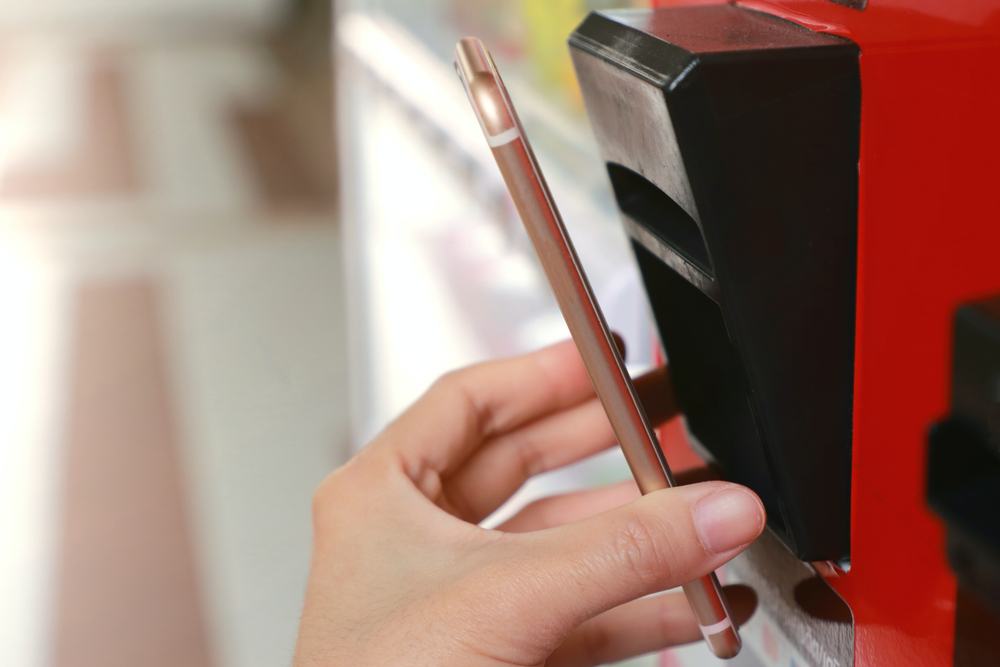
Convenience and speed are top priorities for consumers these days. And nowhere is this more evident than in the vending industry, where technological advancements have transformed the customer experience. Cashless payments have become the new norm, redefining how consumers interact with vending machines. From contactless vending machines to mobile payments vending machines, the shift towards digital transactions is not just a trend—it is the future. This blog delves into the reasons why cashless payments have become the standard in vending, exploring consumer behavior, technological innovation, operational benefits, and future trends.
Changing Consumer Expectations in the Digital Age
Modern consumers expect fast, convenient, and frictionless transactions. The rise of smartphones and digital wallets has shifted consumer behavior dramatically. People now prefer mobile payments vending machines that allow them to tap and go, bypassing the need to carry cash or even cards. Contactless payments, whether via NFC technology or QR codes, align perfectly with today’s on-the-go lifestyle.
Moreover, post-pandemic habits have accelerated this shift. Health and hygiene concerns pushed consumers to seek contactless solutions, driving demand for touch-free payment options in everyday interactions, including vending. As a result, contactless vending machines are becoming a standard feature in public spaces like airports, hospitals, offices, and shopping malls.
Consumer loyalty is also being shaped by payment convenience. A vending machine that offers cashless options can attract repeat customers who value the ease of digital transactions over fumbling with coins and bills. In a world where digital payments are widely accepted in retail, vending operators who fail to adopt these technologies risk falling behind competitors that meet evolving consumer expectations.
Technology Innovations Powering Contactless Vending
At the heart of cashless vending’s rise are the technological advancements making these solutions accessible and reliable. Today’s contactless vending machines are equipped with sophisticated payment terminals that support multiple payment methods, including mobile wallets like Apple Pay, Google Pay, and Samsung Pay. Near Field Communication (NFC) technology allows for quick tap-to-pay transactions, while QR code scanning offers an alternative for customers without NFC-enabled devices.
Integrated telemetry and cloud-based management systems have further enhanced the capabilities of mobile payments vending machines. Real-time data collection and remote monitoring allow operators to track inventory, machine health, and sales performance, while remote software updates ensure machines remain compliant with the latest security standards.
Moreover, the adoption of 5G connectivity is set to bolster the efficiency and speed of cashless transactions, allowing vending machines to operate seamlessly in high-traffic areas without connectivity disruptions. With reliable, scalable technology infrastructure, vending businesses can offer a cashless experience that is as fast and dependable as in-person retail environments.
Operational Benefits for Vending Operators
Beyond meeting consumer preferences, cashless payments offer significant operational advantages for vending businesses. Handling cash involves costs—such as regular machine restocking, cash collection services, and susceptibility to theft or vandalism. Mobile payments vending machines, by contrast, reduce or eliminate these expenses. Operators can streamline their logistics and reduce cash-related security risks.
Cashless systems also provide vending operators with access to valuable consumer data. Payment trends, peak sales hours, product preferences, and machine performance can all be tracked through advanced analytics platforms. This data-driven approach enables operators to optimize inventory management, fine-tune product offerings, and implement dynamic pricing strategies based on real-time demand.
Revenue generation is further enhanced by expanding the customer base. With contactless vending machines capable of accepting multiple payment forms, operators can serve a broader demographic, including tourists, business professionals, and tech-savvy younger customers. The convenience factor translates into increased sales and customer satisfaction.
From a maintenance perspective, remote diagnostics and over-the-air updates reduce the need for physical service visits, enhancing operational efficiency. Software issues can be addressed quickly, minimizing downtime and lost sales.
Security and Compliance in a Cashless Ecosystem
One of the critical concerns surrounding digital payments is security. However, modern cashless vending solutions incorporate robust encryption and tokenization protocols to protect consumer data. Payment terminals in contactless vending machines comply with industry security standards such as PCI DSS, ensuring that transactions are secure and trustworthy.
Mobile payments vending machines also minimize the risk of physical theft, as there is no cash stored on-site. With remote monitoring capabilities, suspicious activities can be detected and addressed promptly.
From a compliance standpoint, vending operators must ensure their systems adhere to regional regulations governing digital payments and data privacy. Implementing GDPR-compliant data collection and management practices, where applicable, builds customer trust and demonstrates operational responsibility.
Adopting cashless technology can thus enhance both security and compliance postures, giving operators and customers confidence in the vending experience.
Future Trends: The Road Ahead for Vending Payments
Looking ahead, the vending industry is poised for continued innovation in cashless payments. Biometric authentication, AI-powered personalization, and loyalty program integration are all on the horizon. Imagine contactless vending machines that use facial recognition for payment or suggest products based on past purchases. Such innovations could elevate the vending experience from transactional to personalized.
Sustainability considerations will also influence future developments. Digital receipts, reduced need for physical currency handling, and efficient route planning via real-time inventory data contribute to environmentally friendly operations, aligning with the growing emphasis on corporate social responsibility.
Additionally, the integration of vending machines into the broader Internet of Things (IoT) ecosystem will further enhance their functionality. Machines could communicate with nearby devices to facilitate smart inventory management or work in tandem with mobile apps for promotional campaigns and product launches.
Conclusion
The adoption of mobile payments vending machines and contactless vending machines is not just a passing trend—it is the new industry standard. Driven by consumer demand, technological advancements, and operational efficiencies, cashless payments are redefining the future of vending. Operators who embrace this transformation stand to gain in profitability, customer loyalty, and market competitiveness, while customers enjoy a seamless, secure, and modern vending experience. The era of coins and bills in vending is drawing to a close; the future belongs to digital payments.
Need a Vending Machine Company Near You?
Established in 1996, VSI Vending & Coffee Services is a vending machine supplier located in Paramount, California and provides service to the surrounding areas including Los Angeles. We offer quality brand-name beverages, food, and snacks to satisfy all of your vending needs. Our large variety of machines include models for coffee, ice cream, fresh food, and more. All products are delivered by the latest state-of-the-art technology to ensure the best vending experience. We respond to all service and repair calls promptly and professionally. Contact us today for your free consultation!

